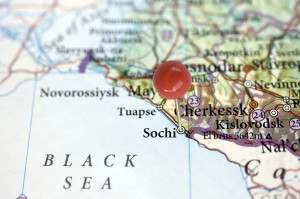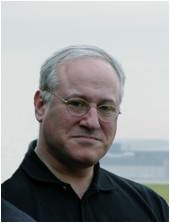By Jon Gordon, Deputy Chief (Retired), Atlanta Police Department & Professor of Homeland Security, American Military University
Coordinating the law enforcement and security responsibilities necessary to safeguard the Olympic Games is a task that takes years of preparation, thousands of people, and an international law enforcement effort. The task of protecting the Games is so enormous that regardless of which country hosts, there may be a lack of indigenous law enforcement expertise in place to secure such a massive international sporting event.
Fortunately, there is a well-established legacy of sharing professional knowledge among law enforcement professionals—individuals charged with securing previous Olympics (formally and informally) who make themselves available to subsequent host countries. These law enforcement professionals, from all over the world, get together to share strategies, lessons learned, and the methods necessary to fulfill mandated security requirements imposed by the International Olympic Committee (IOC).
The Reality of Terrorism
The terrorist attack during the 1972 Munich Summer Olympic Games resulted in the murder of 11 Israeli athletes and forever changed the atmosphere of special events. After 1972, “the specter of terrorism would [henceforth] be linked to all international special events.”

- Russia kills senior militant leader ahead of Sochi Olympics, officials say
- European, US officials on alert after Olympic athletes in Sochi receive terror warnings
- Sochi Olympics terrorism threat: Two more ‘black widow’ suspects identified
- US military makes contingency plans for Sochi Olympics
Russia has made a considerable investment in security personnel, reportedly using 100,000 police, security agents and army troops to safeguard the 17-day schedule. In comparison, the 2010 Vancouver Winter Olympics deployed 15,000 security personnel. The 2012 London Summer Olympics deployed 13,000 civilian officers and 17,000 military personnel.
The Six-Year Preparation Cycle
After winning an Olympic bid, the host country’s law enforcement agencies (in addition to its other public safety agencies and military forces) face a daunting challenge during the ensuing six years. Olympic-related demands for services become extensive, unique, and potentially overwhelming if adequate preparations are not completed in time.
It takes six years for police to develop and strengthen Olympic security capabilities—which are broad in scope and extensive—due to interdependence with emerging Olympics Organizing Committee (OOC) event preparations. For example, planning the security of competition venues that are not yet built is challenging. Additionally, the OOC is reluctant to share its event information, which it considers as proprietary material.
In addition, there is an inherent lengthy timeframe in developing plans, operational policies and procedures, acquiring and absorbing new resources, training, and extensive exercises for validating capabilities to support extended (often one-time) Olympic-specific mission requirements. When asked to put the timeframe in perspective, a veteran Olympic police official once explained: “Since the date for opening ceremonies is set in stone, security preparations either will fall into place or collapse into place, so they must be completed in time.”
To put Olympic security requirements in perspective, the government security services include coordinated capabilities to support:
- Accreditation and Access Control
- Airport, Train Station, and Harbor Security
- Aviation
- Communications
- Crowd Management & Crowd Control
- Dignitary Protection
- Explosive Ordinance Detection
- Hazardous Materials Incidents
- In-transit Security for Athletes
- Routine Public Safety Services (police, fire, medical)
- Traffic Management for Olympic Transportation System
- Tactical (SWAT)
- Venue (Competition, Training, & Functional), Olympic Village, Ceremony, and Cultural Event Security
- Public and Olympic Sponsor Event Security
- Infrastructure Security
Experience Securing the 1996 Atlanta Olympics
Since 1896, the United States has hosted the Olympics eight times, giving it more experience than any other country. However, in preparation for the 1996 Atlanta Games, we still turned to those who had international and large-scale event experience for assistance.
Along with colleagues, I benefitted from this international expertise in 1992 and 1994 when I worked with the Olympic police in Barcelona (Summer Olympics) and Lillehammer (Winter Olympics). These visits included extensive briefings, discussions, and opportunities to observe firsthand the conduct of Olympic security operations, which helped minimize uncertainty back home.
In some instances, this expertise was brought to the Atlanta Games. For example, (in addition to its counter-terrorism and tactical expertise) the FBI assigned a supervisory special agent to its Atlanta Field Office who worked extensively with Olympic security forces in Los Angeles (1984), Seoul (1988), and Barcelona (1992).
In addition to international experience, U.S. Secret Service personnel had extensive, major special event planning, and operational experience derived from presidential inaugurations, political conventions, and other major events. FEMA shared its emergency management experience in response to major disasters. The Department of Defense, through its former Office of Special Events, assigned additional personnel with extensive Olympic and major event experience to support security preparations for the 1996 Atlanta Olympics.
Notably, senior security planners for the 1996 Olympic Games (including me) readily acknowledge the tremendous value derived from those who shared their experience, knowledge, and lessons learned from past Olympics (and similar major special events).
Passing on the Torch
Leading up to and during the 1996 Atlanta Olympics, federal, state, and local agencies provided similar opportunities for security officials who were slated to host future Olympics. For example, the New South Wales Police in Australia—the lead law enforcement agency for the 2000 Sydney Olympic Games—assigned officers to the State of Georgia and Atlanta Police Olympic commands.
After the 1996 Summer Olympics, I joined colleagues from the FBI and Georgia Bureau of Investigation and liaised with New South Wales Police officials in Sydney. Together, we participated in an Olympic security workshop for the 2000 Games.
Since hosting the Olympics is rare, retired police officials (“Olympic veterans”) may provide legacy support. For example, in addition to Sydney, I worked with Olympic police forces in Salt Lake City, Athens, Beijing, and London. Recently, I participated in hosting police officials from Rio de Janeiro, host city for the 2016 Olympics, during their visit to Atlanta. Other retired public safety officials have made similar contributions, sometimes long after their Olympics.
In some instances, professional organizations contribute to sustaining the legacy of sharing professional knowledge. Perhaps the best example is the Georgia International Law Enforcement Exchange Program (GILEE), which has provided or facilitated support for seven Olympics, beginning with Atlanta (1996), and continuing with Rio de Janeiro (2016). GILEE’s continued support is invaluable, and its efforts are internationally recognized for supporting professional excellence in law enforcement. This organization has underwritten the cost of bringing past and present Olympic parties together, a contribution that deserves acknowledgement.
To summarize, there are three ways for Olympic security officials to learn how to prepare for and conduct security operations for an Olympic Games:
- Work an Olympics.
- Read about security preparations and operations from previous Olympic after-action reports and related documents.
- Talk with people who have worked an Olympics.
Russia will shortly host the 2014 Sochi Winter Olympic Games, bringing 3,000 athletes from 85 countries together to compete amid deep concerns about terrorism. To some extent, it appears that terrorists have already brought “terror” to the event regardless of whether a terrorist event actually occurs.
The hope is that Russia’s future contribution to the Olympic legacy will highlight how its security forces successfully prevented terrorism and safeguarded the 2014 Sochi Olympics.

Comments are closed.